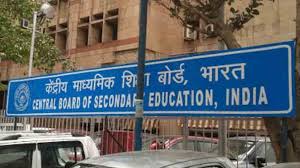Our Services

Allahabad HC: Right to Change Name in Educational Records a Fundamental Right of a Student
The Allahabad High Court, in a landmark judgment, has held that
a student has an inherent fundamental right to change his / her name and also
that a student has the right to effect necessary changes in the educational
records arising out of such change in the name. The Court, with the passing of
this judgment, has brought the said right within the ambit of Article 19(1) (a)
and Article 21, of the Constitution of India.
The petitioner challenged the hyper technical approach in
rejecting the application for change of name on the ground that the particulars
of the school records do not reflect the change of name as sought by
the petitioner. The CBSE also disregarded the
fact that the name of the petitioner had been changed
from Rishu Jaiswal to Kabir Jaiswal by following due procedure of
publishing a notice in the Gazette of India and inviting objections
if any, and also that that the name change had already
been effected in the Aadhaar Card and PAN; his plea to execute a
name change in the educational certificates was rejected by the CBSE.
It was argued here, that issuance of gazette notification
without any objections ‘announced to the world in ‘rem’ the intention of the
petitioner to change his name; further to which the CBSE had no reason to
refute the petitioner’s application.
CBSE in response countered the argument stating that permission
for a change in the candidate name/mother’s name/father’s name where the
request was made either prior or subsequent to the publication of the result of
the candidate shall be executed only ‘if it is at variance with the names
recorded in the school records’.
The Hon’ble High Court relied on the following observation of
the Kerala High Court in the case of Kailash Gupta v. CBSE, 2020 SCC Online Ker
1590
Name is something very personal to an individual. Name is an
expression of one's individuality, one's identity and one's uniqueness. Name is
the manner in which an individual expresses himself to the world at large. It
is the foundation on which he moves around in a civil society. In a democracy,
free expression of one's name in the manner he prefers is a facet of individual
right. In Our Country, to have a name and to express the same in the manner he
wishes, is certainly a part of right to freedom of speech and expression under
Article 19 (1) (a) as well as a part of the right to liberty under Article 21
of the Constitution of India. State or its instrumentalities cannot stand in
the way of use of any name preferred by an individual or for any change of name
into one of his choice except to the extent prescribed under Article 19(2) or
by a law which is just, fair and reasonable.
The Court finally agreed with an earlier judgement of
other High Courts that the individual ‘name’ is a facet of right of expression,
which is guaranteed under Article 19(1) (a) read with Article 21 of the
Constitution of India and held that:
The freedom of expression as guaranteed under Article 19(1) (a)
includes within its sweep all forms of expressions and name in the present
world is clearly a strong expression.
The Court also proceeded to decide upon another
important aspect that whether the regulations issued
by the CBSE, which prohibits the change of name except in the
scenario as emphasized under Regulation 69.1 (i) and 69.1 (ii) can be used to
deny the rights enshrined under Article 19 (1) (a) of the Constitution of
India.
The Court referring to the constitutional position that the
right enshrined under Article 19(1) (a) of the Constitution of India are
fundamental rights and can be taken away or restricted only in accordance with
the procedure prescribed under Article 19(2) of the Constitution of India, after
examination of the Rules of CBSE, its legal character came to the conclusion
that the Rules as framed by the CBSE do not have any statutory flavour and
cannot be considered to be the ‘law’ as required for placing reasonable
restrictions on the rights enshrined under Article 19(1)(a), in terms of
Article 19(2) of the Constitution of India.
Reconciling the undue hardship that the student and CBSE may
face due to different name in different records, as the certificate issued by
the earlier name, has already been issued to the petitioner, the Court
directed CBSE to issue a fresh certificate petitioner as “Kabir
Jaiswal alisa/nee Rishu Jaiswal”.
EduLegal View:
What is in a name? says the popular Shakespearean
Quote. Although in a different context, the Allahabad High Court has
answered it emphatically; the name is now a fundamental right of an
individual in India. This is again in continuation of the series of judicially
declared fundamental rights, which though do not directly find presence in the
Constitution but have been so interpreted by courts to be within the scope
of one or the other fundamental rights.
Another critical issue, which emerges from this Judgement is
that the government should now consider giving CBSE a statutory character.
This has been long due and considering the extensive
presence of CBSE schools in India, it
is time that this requirement is given due importance.
Ravi Bhardwaj | mail@edulegal.in |
EduLegaL View:
The Allahabad High Court, in a landmark
judgment, has held that a student has an inherent fundamental right to change
his / her name and to effect necessary changes in the educational records
arising out of such change in the name.






